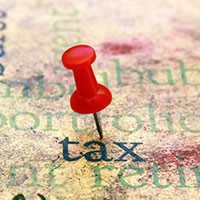Last updated: July 09 2019
Both Tax Filings and Tax Refunds are Lower in 2019

Beth Graddon
Individual income tax filing statistics for the 2018 tax year to July 2 show that more than 28.5 million Canadians have filed this season. That’s down from the nearly 30 million last year. So are average tax refunds, which now sit at $1,706 compared to $1,765. It’s an important opportunity for tax specialists to review prior filed returns and find out why, while also discussing several new tax changes occurring in 2019.
For those who have not yet filed, now is the time to catch up. The CRA may owe the taxpayer lots of money: not just in tax refunds but in refundable tax credits that are missed through a failure to file. Plus, if taxpayers owe the CRA, interest charges will compound daily at a high rate: 6% this quarter. It’s best to nip that non-deductible expense in the bud as soon as possible.
Lower tax refunds are a particularly interesting phenomenon this year, considering the refundable Climate Action Incentive (CAI) payments were introduced to eligible Canadians in some  provinces on 2018 tax returns. The task now is for tax specialists is to determine why refunds are lower for many. Now may be the right time to dig more deeply for additional savings since the pressure from tax season deadlines is behind us. Remember, tax returns can be adjusted for errors and omissions up to 10 years back.
provinces on 2018 tax returns. The task now is for tax specialists is to determine why refunds are lower for many. Now may be the right time to dig more deeply for additional savings since the pressure from tax season deadlines is behind us. Remember, tax returns can be adjusted for errors and omissions up to 10 years back.
It’s also as important to look forward. There have been new federal and provincial tax changes implemented as of July 1, and with the coming election, there’s the potential for many still to come in 2019. Knowing your clients’ tax scenario well now can pay off handsomely when it comes time for year-end tax planning - when the question will be, will taxpayers will keep more in 2019 when they file their tax returns in 2019?
Here’s a synopsis of some of the recent changes that could have a bearing:
As of July 1, the Yukon was the latest province/territory, following Alberta’s recent adoption of carbon tax, to introduce the levy and rebates to residents. This means that Climate Action Incentive payments will be available to every Yukoner who filed a tax return this season. Payments of $43 will be issued in October 2019 and April 2020, which the government estimates is a rebate that will put $2 more in the pockets of residents than the average resident can expect to spend as a result of the tax increase during the same period.
It’s not a large surplus to reduce taxes owed, but by 2023, the average person in Whitehorse will receive a rebate of $284 per year, and those outside of Whitehorse will receive an additional 10% supplement, for an average of $312.40 per person. The government estimates the average carbon tax cost per person will be $187. However, average payment amounts received have come in lower than originally estimated in provinces who were eligible to claim the CAI on their 2018 tax return.
Will that trend also occur when Alberta and Yukon begin issuing payments? We’ll have to wait and see, but here’s how the Yukon’s estimated payment amounts stack up against the payments issued in Ontario, Manitoba, New Brunswick and Saskatchewan so far this year.
|
Average Rebate as of June 3 |
Estimated Rebate |
|
|
Ontario |
$203 |
$300 |
|
Manitoba |
$231 |
$336 |
|
New Brunswick |
$174 |
$248 |
|
Saskatchewan |
$422 |
$598 |
Another recent change, impacting residents of Manitoba which may help reduce taxes paid by those in the province in 2019, was a 1% PST reduction that was promised in the March 7 provincial budget. As of July 1 st, the Manitoba provincial sales tax rate dropped to 7%.
Other promised provisions from the provincial budgets have yet to be implemented – so time will tell how this impacts the tax burden of Canadians for 2019. Many Ontario families are anxiously awaiting news on the implementation of the CARE tax credit , which promises to help 300,000 families with up to 75% of their childcare costs (up to $6,000 per year, per child under 7), with more flexibility regarding eligible options as this could have a big impact on the money they keep in their pockets.
On the other side of the coin, there’s the federal CPP enhancements which take a bite out of the take-home pay of employed Canadians which has the potential to offset the decline in taxes paid through federal and provincial tax legislation implemented this year.
Tax pros can help Canadians make sense of it all for 2019. Use the Knowledge Bureau’s Income Tax Estimator to help. One of 15 sophisticated tax calculators, this outstanding planning tool can help to estimate taxes/refunds for 2019. Both Knowledge Bureau Calculators and the powerful Evergreen Explanatory Notes are available on a subscription basis; and they’re free when a Knowledge Bureau online course is taken either individually or within a designation program.
Additional educational resources: help Canadians access the tax benefits and credits that will help them keep more of their hard-earned money in their pockets this year. Get your DFA-Tax Services Specialist™ credentials.
COPYRIGHT OWNED BY KNOWLEDGE BUREAU INC., 2019.
UNAUTHORIZED REPRODUCTION, IN WHOLE OR IN PART, IS PROHIBITED.
